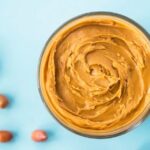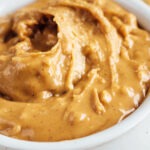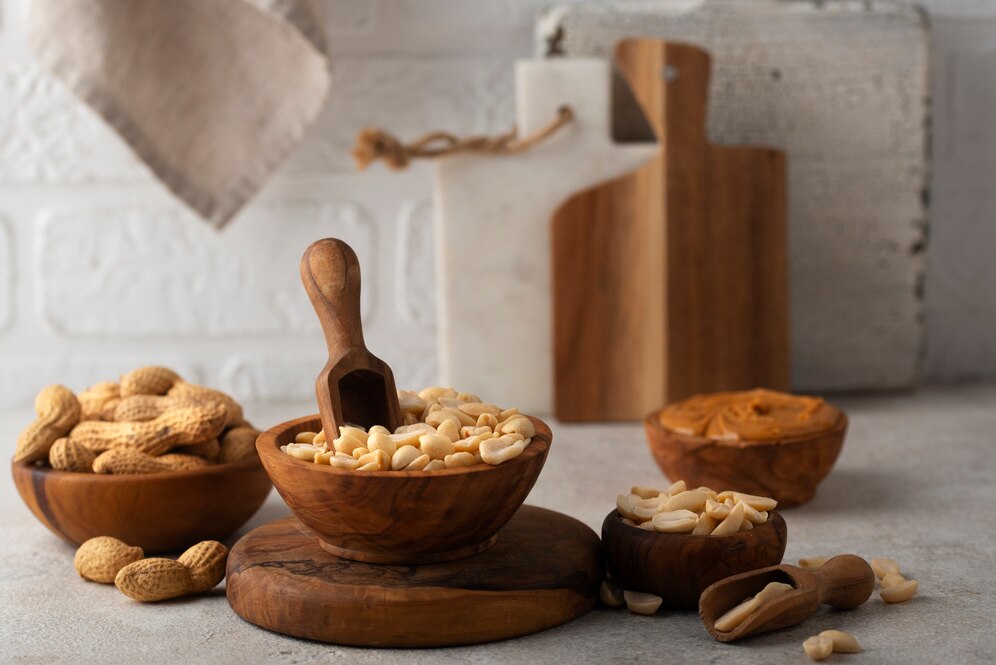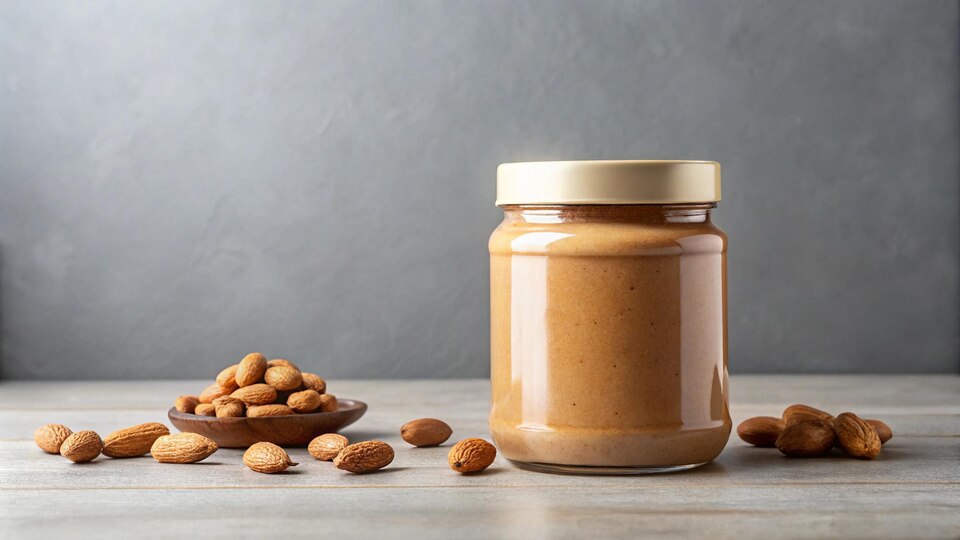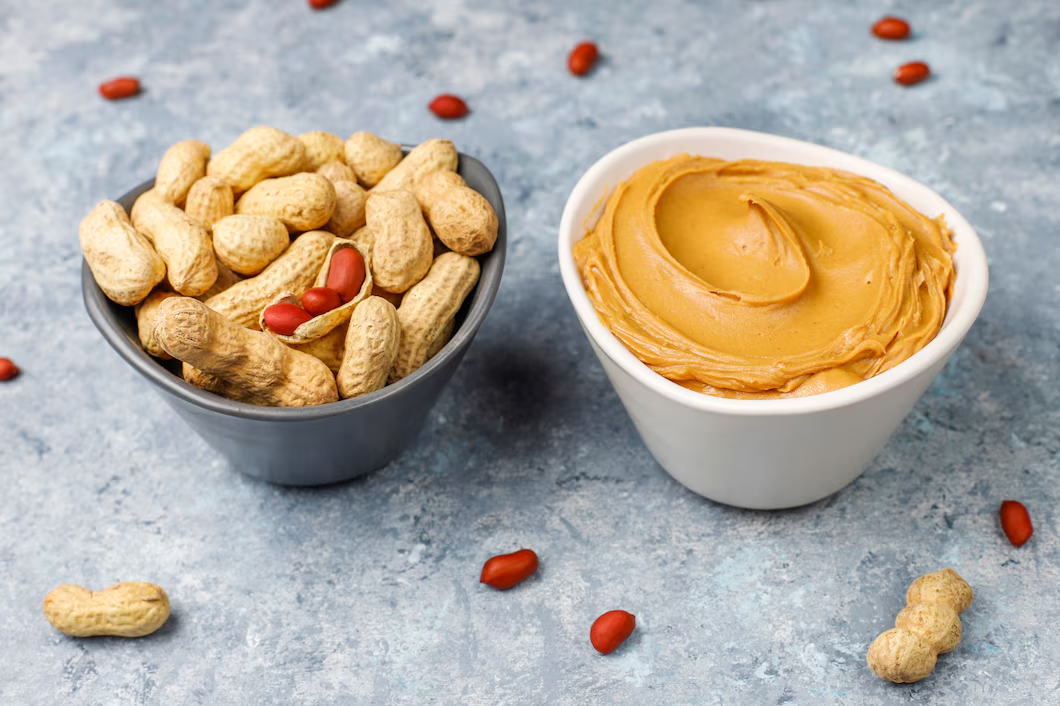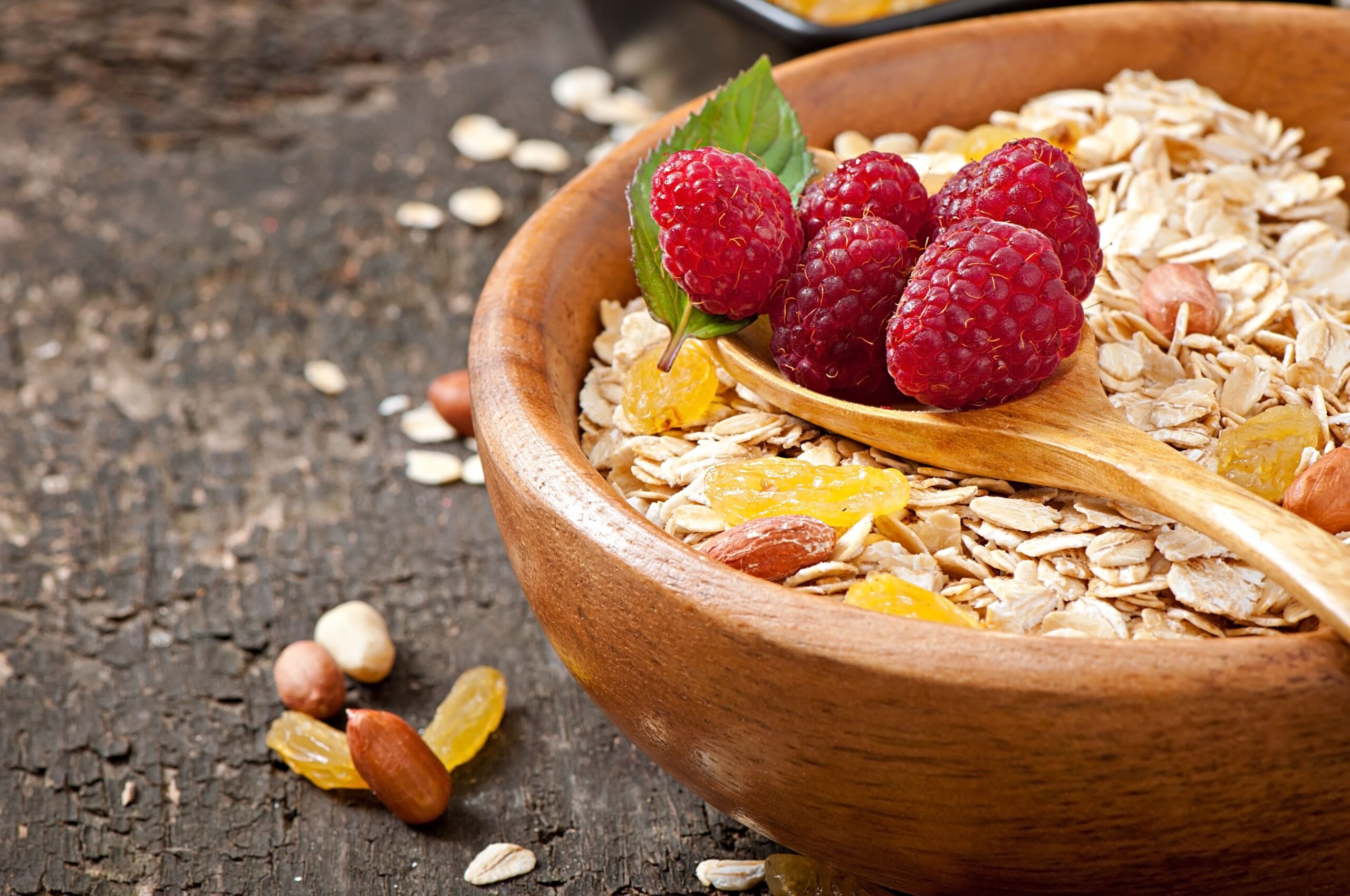
10 Frequently Asked Questions about Peanut Butter
In this article, we delve into the world of peanut butter and uncover answers to the most frequently asked questions about this beloved spread.
1. Understanding Peanut Butter
Q. What is peanut butter made of?
Roasted peanuts are mashed into a smooth or chunky mixture to create peanut butter. The peanuts undergo a meticulous process of shelling, blanching, roasting, and grinding, ensuring optimal flavour and texture.
Q. Different types of peanut butter available
Peanut butter enthusiasts have a range of options to choose from, spanning smooth and creamy to crunchy and chunky textures. Moreover, certain manufacturers produce flavoured peanut butter like honey-infused or chocolate-swirled types, catering to a variety of tastes.
2. Nutritional Composition
Q. Which nutrients does peanut butter contain?
Peanut butter boasts an impressive nutritional profile. It is an excellent source of protein, healthy fats, fibre, vitamins, and minerals. Packed with amino acids, it provides a substantial energy boost while promoting satiety.
Q. Peanut butter can be a component of a healthy diet.
Absolutely! When consumed in moderation, peanut butter can undoubtedly be part of a healthy diet. Its nutrient-rich composition contributes to enhanced heart health, improved blood sugar control, and reduced risk of chronic diseases.
3. Health Benefits and Concerns
Q. Does peanut butter include a lot of protein?
Indeed, peanut butter is an excellent source of plant-based protein. A serving of peanut butter contains approximately 7-8 grams of protein, making it a valuable addition to vegetarian or vegan diets.
Q. Does peanut butter help in losing weight?
While peanut butter is calorie-dense, it can still be a helpful tool for weight management. Due to the high protein and fibre content, feelings of fullness are encouraged, which may result in a reduction in total calorie intake.
Q. Can peanut butter reduce the chance of developing heart disease?
Regular consumption of peanut butter has been associated with a reduced risk of heart disease and lower levels of “bad” cholesterol.
Q. Allergic reactions and alternatives for those with allergies
Though peanuts are a staple ingredient in peanut butter, it is essential to note that many individuals have peanut allergies. For those with allergies, there are alternative nut or seed butter options available, such as almond butter or sunflower seed butter, which offer comparable taste and texture
4. Peanut Butter in Cooking and Recipes
Q. Do chefs use peanut butter in gourmet recipes?
From satay sauces to tantalising desserts, the versatility of peanut butter is admired and celebrated in the culinary world.
Q. Creative ways to use peanut butter in everyday cooking
It can be incorporated into a plethora of everyday dishes to elevate their taste and nutritional value. Add a dollop to your smoothie, drizzle it over roasted vegetables, or even use it as a base for savoury sauces—get creative and explore the endless possibilities!
5. Peanut Butter and Fitness
Q. Peanut butter as a pre-workout snack
Packed with healthy fats, protein, and carbohydrates, it provides sustained energy and supports optimal workout performance.
Q. Does peanut butter aid muscle recovery?
Absolutely! The protein content in peanut butter plays a vital role in repairing and rebuilding muscles after intense workouts.
Q. Peanut butter for athletes and fitness enthusiasts
The combination of protein, healthy fats, and carbohydrates makes it an excellent choice to fuel workouts, support muscle growth, and replenish energy stores.
6. Organic and Natural Peanut Butter
Q. Difference between organic and conventional peanut butter
Organic peanut butter is crafted from peanuts grown without synthetic fertilisers, pesticides, or GMOs. In contrast, conventional peanut butter can contain peanuts treated with these chemicals.
Q. Pros and cons of natural peanut butter
Natural peanut butter, known for its oil separation, provides a pure taste with few added ingredients. Although oil separation can be seen as a drawback, it highlights its purity. Yet, without stabilisers, it might have a shorter shelf life than commercial options.
7. Peanut Butter and Sustainability
Q. Environmental impact of peanut butter production
The production of peanut butter can have both positive and negative environmental impacts. Peanuts are considered a relatively sustainable crop as they require less water compared to some other crops. However, certain farming practices, such as excessive chemical use or deforestation, can contribute to environmental degradation.
8. Peanut Butter Myths Debunked
Q. Can peanut butter lead to gas and bloating?
Individuals with specific dietary sensitivities or digestive disorders might experience such symptoms, but for the general population, peanut butter is unlikely to cause significant discomfort.
9. Shelf Life and Storage
Q. How long does peanut butter last?
Peanut butter’s longevity largely depends on proper storage. Commercial peanut butter in sealed jars can remain viable for about a year when stored in a pantry.
On the other hand, natural peanut butter, lacking preservatives, might necessitate refrigeration and typically has a shorter shelf life.
10. Others
Q. Addressing concerns about aflatoxins
Aflatoxins are natural toxins found in crops like peanuts. Yet, stringent agricultural rules and quality checks in peanut butter production keep aflatoxin levels safe. Therefore, consuming peanut butter isn’t substantially risky.
Q. Is peanut butter suitable for vegans?
Yes, peanut butter is suitable for vegans as it is made solely from plant-based ingredients.
Q. A serving of peanut butter contains how many calories?
On average, a serving of peanut butter (about 2 tablespoons) contains approximately 180-200 calories, depending on the brand and type.
Q. Can peanut butter be part of a keto diet?
While peanut butter can be consumed in moderation on a keto diet due to its healthy fats, To make sure it meets your unique nutritional demands, it’s crucial to take into account the overall macronutrient balance and portion sizes.
In summary, peanut butter is a versatile and incredibly nutritious spread that has rightfully earned its place in our hearts and pantries. The protein, healthy fats, and array of essential nutrients it offers make it an excellent addition to a balanced diet.




